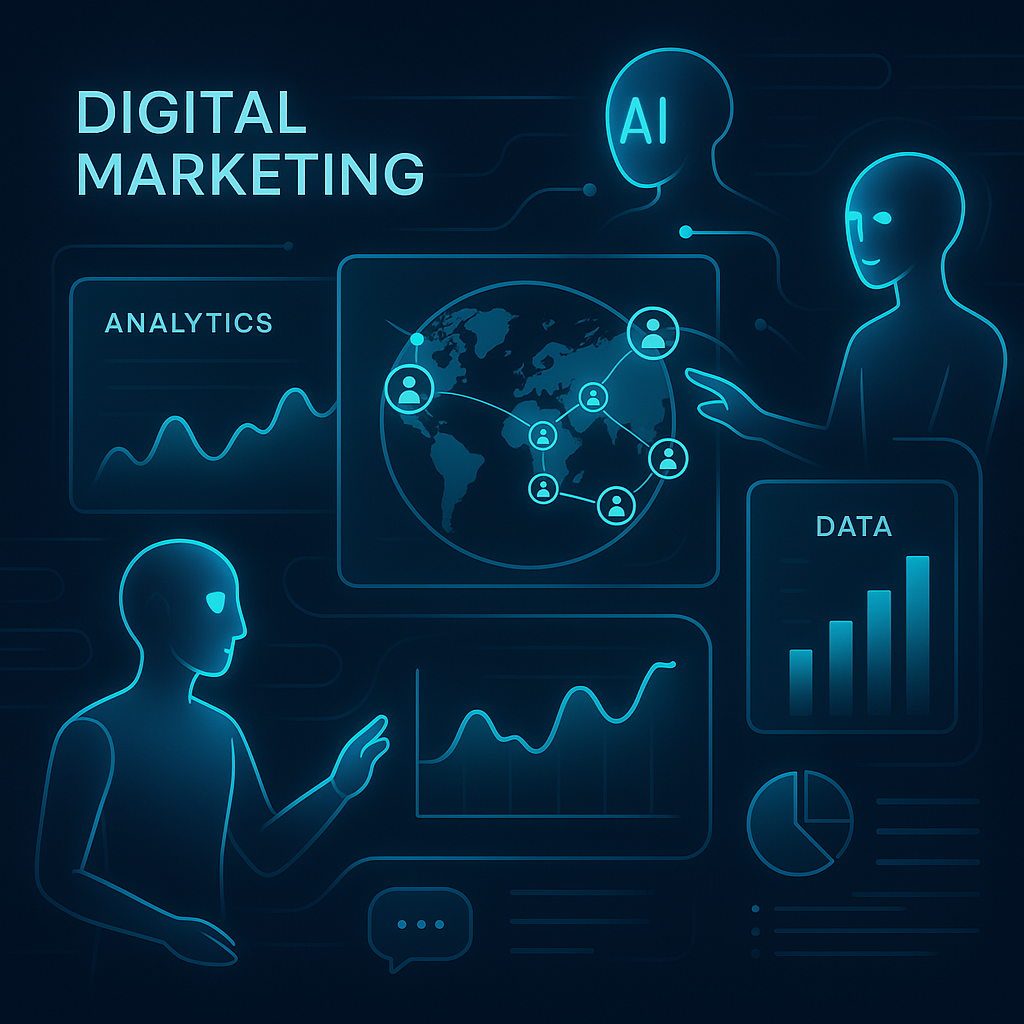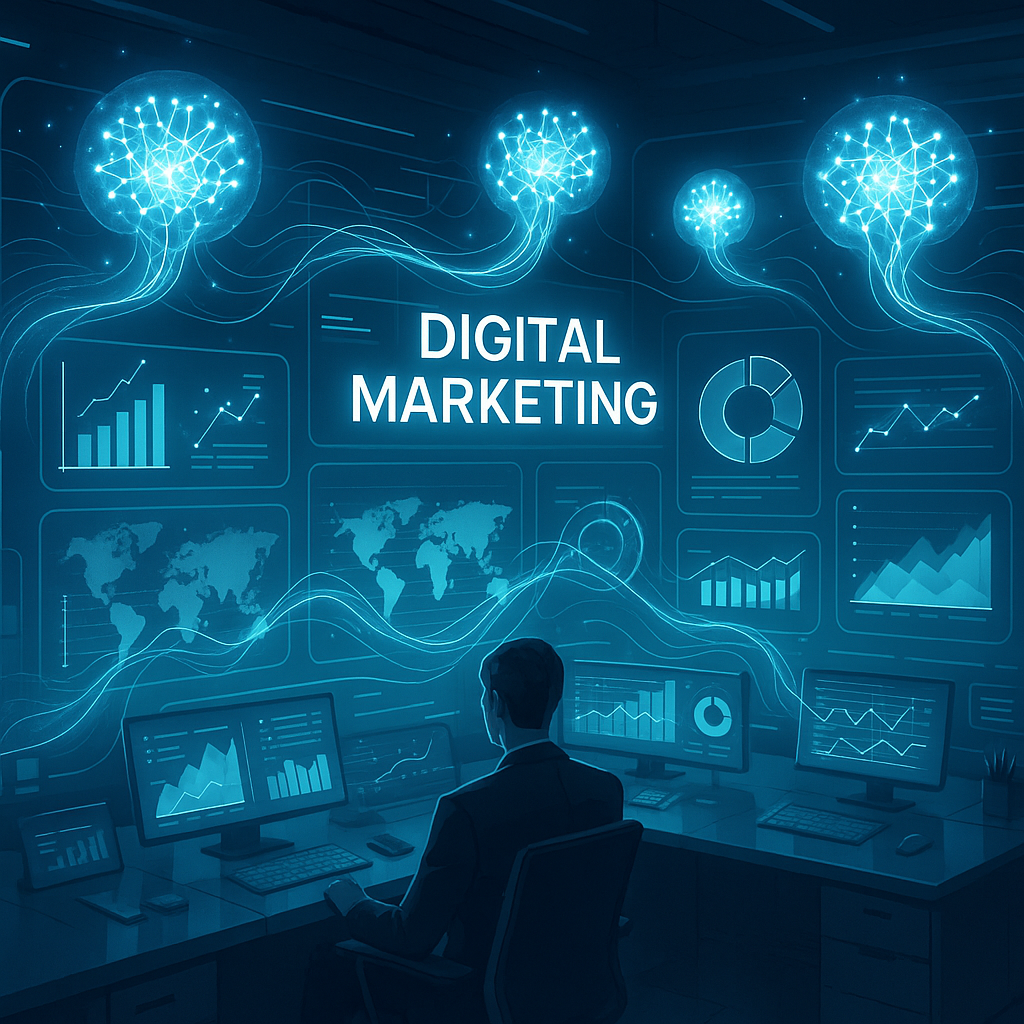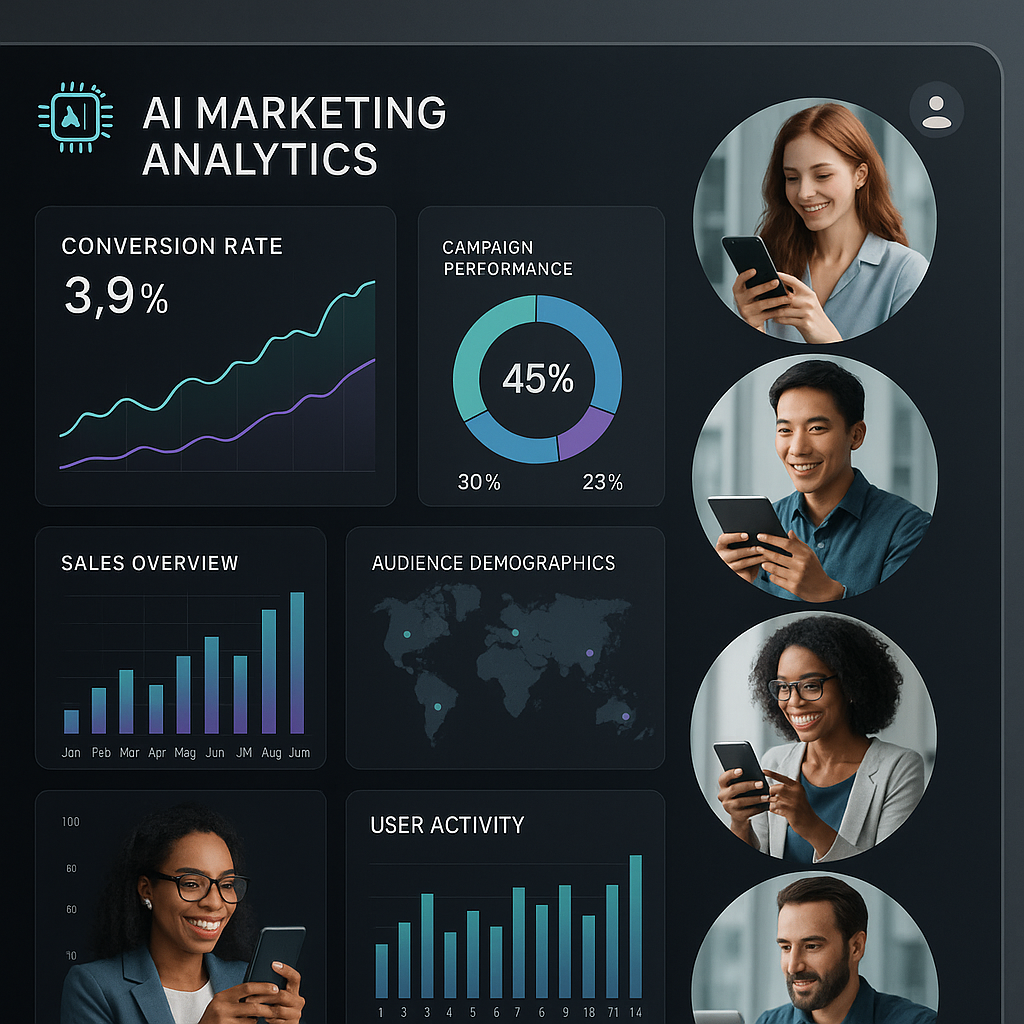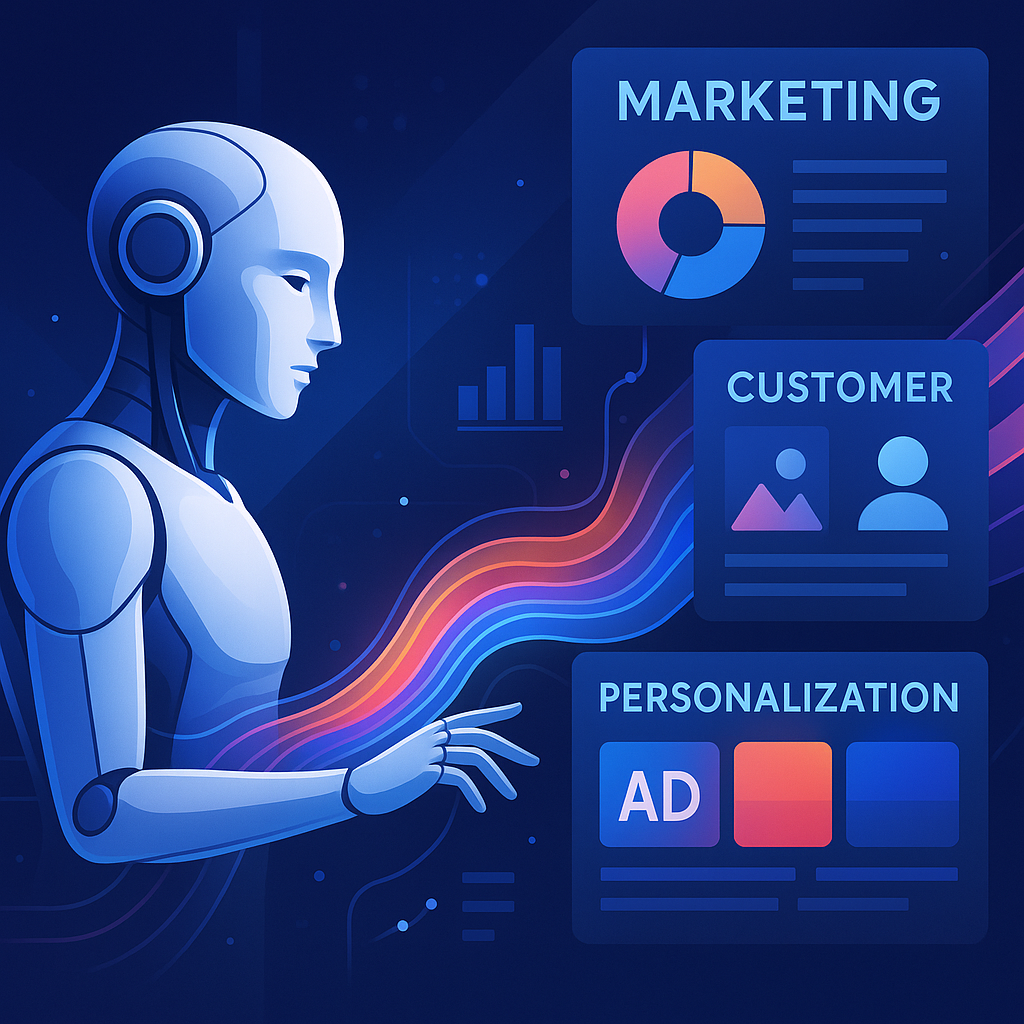
Intelligent Agents: Revolutionizing AI in Digital Marketing
Introduction to artificial intelligence and intelligent agents in Digital Marketing
As we move further into 2025, artificial intelligence (AI) continues to advance, deeply influencing digital marketing strategies around the globe. Among the most transformative elements are intelligent agents: autonomous AI-driven systems designed to interact, learn, and respond dynamically to users, data, and environments. These intelligent agents have emerged as pivotal tools in revolutionizing how brands attract, engage, and retain customers.
The Evolution and Role of Intelligent Agents
Intelligent agents, often perceived as software entities capable of autonomous action, have evolved significantly beyond simple chatbots or automation scripts. Today, these agents:
- Process natural language to engage customers more conversationally and intuitively.
- Analyze data streams in real-time, adapting marketing tactics based on user behavior and context.
- Personalize experiences at scale, offering bespoke product recommendations, content, and support.
- Coordinate multi-channel campaigns independently, optimizing timing, content, and audience targeting.
These capabilities enable marketers to focus on strategy and creativity, while intelligent agents handle complex, data-driven tasks rapidly and precisely.
Harnessing Artificial Intelligence and Digital Marketing Synergies
The blend of artificial intelligence and digital marketing has unlocked possibilities unimaginable a decade ago. Intelligent agents sit at this intersection by serving as adaptive intermediaries between brands and consumers. Key innovations include:
1. Hyper-Personalized Customer Journeys
Instead of generic campaigns, AI-powered agents analyze individual preferences, browsing histories, and purchase patterns to craft uniquely tailored user experiences. For instance, an e-commerce site may deploy intelligent agents that update product displays dynamically as customers interact, turning visits into highly personal shopping adventures.
2. Predictive Customer Engagement
With machine learning algorithms, intelligent agents forecast customer needs and identify optimal moments for engagement. A streaming service might use such agents to anticipate when a subscriber is likely to churn and automatically deliver targeted incentives or content to retain them.
3. Real-Time Sentiment and Behavior Analysis
Social listening powered by intelligent agents helps brands gauge public opinion, respond to trends swiftly, and tailor messaging effectively. These agents synthesize vast social data streams, enabling marketing teams to pivot campaigns or address crises proactively.
4. Autonomous Content Generation and Optimization
Intelligent agents assist in generating engaging copy, designing visuals, and A/B testing in real-time, reducing time-to-market and enhancing campaign performance. For example, a fashion brand’s AI agents can create seasonal newsletters tailored to local market preferences without human intervention.
Practical Examples of Intelligent Agents Revolutionizing Customer Engagement
Across industries, intelligent agents are redefining customer engagement paradigms:
Health and Wellness Platforms
AI agents provide users with personalized fitness and nutrition plans, adapting recommendations based on real-time health data and user feedback, fostering sustained engagement and improved outcomes.
Financial Services
Banks deploy intelligent agents to offer personalized financial advice, detect fraud with greater accuracy, and streamline customer service queries, enhancing trust and satisfaction.
Travel and Hospitality
Travel agencies leverage intelligent agents to curate customized itineraries, adjust offers according to preferences, and deliver 24/7 conversational support in multiple languages, creating seamless customer journeys.
Challenges and Ethical Considerations
Despite the promise, integrating intelligent agents in digital marketing carries challenges:
- Privacy concerns: Collecting and processing large datasets risk infringing on customer privacy if not managed transparently and compliantly.
- Algorithmic bias: Without careful design, intelligent agents can perpetuate biases, alienating segments of customers.
- Over-automation: Excess reliance on AI interactions may diminish genuine human touch, affecting brand authenticity.
Addressing these requires balanced strategies emphasizing ethical AI use, data security, and maintaining human oversight.
The Future Outlook: Intelligent Agents and Digital Marketing
Looking ahead, intelligent agents will embed deeper into marketing ecosystems. Emerging trends include:
- Emotionally intelligent AI: Agents will better interpret and respond to human emotions, enriching interactions.
- Multi-agent collaboration: Networks of AI agents specialized in functions like analysis, creativity, and customer support will collaborate autonomously, delivering holistic marketing experiences.
- Integration with emerging technologies: Combining AI agents with augmented reality, IoT, and blockchain will open new engagement horizons.
Conclusion
In 2025, the fusion of artificial intelligence and intelligent agents stands as a transformative force reshaping digital marketing's landscape. These technologies empower brands to understand customers more profoundly, engage more authentically, and adapt more swiftly than ever before. As intelligent agents evolve, their role in crafting seamless, personalized customer journeys will only intensify, heralding a new era where marketing is not just smart—but profoundly intelligent.







